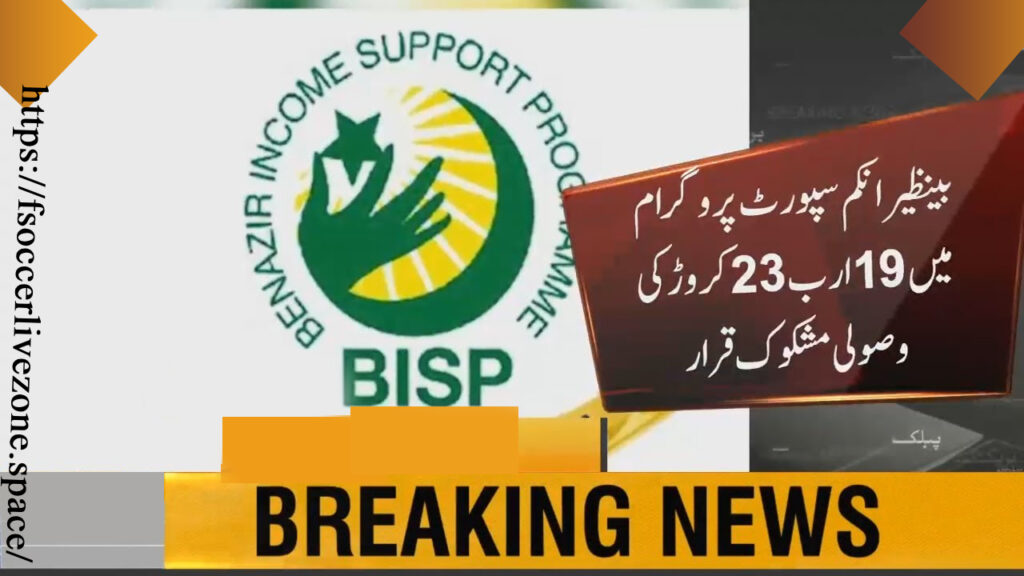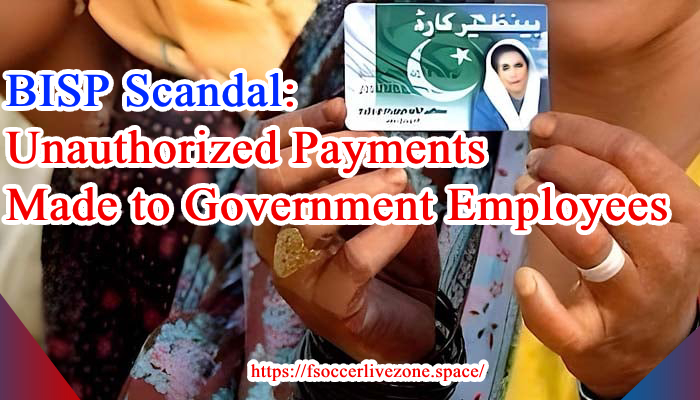Audit reveals over Rs. 89 million in BISP Scandal payments were wrongly issued to government employees’ families and pensioners. Full breakdown and government response here
Islamabad, Pakistan – A startling revelation has surfaced concerning the Benazir Income Support Programme (BISP), one of Pakistan’s flagship social protection initiatives. During a recent session of the Public Accounts Committee (PAC), it was revealed that government employees’ wives, pensioners, and their families received payments under the program, in direct violation of eligibility rules.
The PAC meeting was chaired by Junaid Akbar, where audit officials laid out the findings in detail, exposing major flaws in the system’s implementation and oversight.
BISP Scandal Payments to Ineligible Beneficiaries
According to the audit authorities, a significant portion of funds disbursed under the BISP were illegally paid to ineligible recipients, including:
- Wives of active government employees
- Pensioners’ wives
- Families of Grade 1–20 officers and retirees
This misappropriation of funds stands in stark contradiction to BISP’s mission, which aims to support the most vulnerable and economically disadvantaged segments of society.
Breakdown of the Financial Discrepancy
The audit revealed some eye-opening statistics:
- An estimated Rs. 89.8 million was unlawfully disbursed to ineligible beneficiaries.
- 2,352 active government employees and 704 pensioners’ wives were identified as recipients.
- Payments were made across various pay grades, including:
- 263 from Grade 15
- 42 from Grade 16
- 21 from Grade 17
- 15 from Grade 18
- 11 from Grade 19
- 3 from Grade 20
These payments are in breach of BISP’s eligibility criteria, which exclude individuals or families receiving monthly pensions above Rs. 30,000 or belonging to government-employed households.
Audit Authorities Demand Accountability
Audit officials emphasized the gravity of the issue, calling for a comprehensive review and reimbursement of the funds from those found guilty. The committee members expressed disappointment over the systemic loopholes that allowed such large-scale violations to take place.
They further questioned how such transactions could occur without triggering any red flags within the monitoring or verification systems of the BISP Scandal.

Government’s Response and Possible Reforms
In light of the revelations, the PAC has directed BISP authorities to launch an internal inquiry and update their verification protocols. The government is now considering a digital overhaul of the program to better integrate NADRA, pension, and employment data to eliminate duplication and fraud.
This move is intended to ensure that future BISP Scandal payments strictly reach only deserving low-income families and not salaried or pensioned individuals with financial stability.
What is BISP?
Launched in 2008, the Benazir Income Support Programme is Pakistan’s largest social welfare initiative. It was designed to provide direct cash assistance to the poorest families, especially widows, orphans, and women-led households struggling to meet basic needs.
As of 2025, millions of households rely on BISP stipends to survive amidst economic inflation and unemployment.
However, recent controversies—like this one—raise concerns about the credibility, fairness, and transparency of the program.
Concerns from Civil Society
Experts and civil society representatives have long warned that political favoritism, weak data validation, and lack of audits make BISP vulnerable to misuse. The latest findings validate these fears.
There is also concern that legitimate beneficiaries may be crowded out by undeserving individuals, thereby compromising the core purpose of the welfare scheme.
Conclusion: about BISP Scandal
The revelation of illegal payments to non-eligible individuals under BISP has put the spotlight back on the importance of data integrity and transparent disbursement mechanisms. The government must act swiftly to not only recover the lost funds but also to restore public trust in one of the country’s most important social safety nets.
If not addressed urgently, such incidents risk undermining the broader goals of poverty reduction and social welfare equity in Pakistan.


